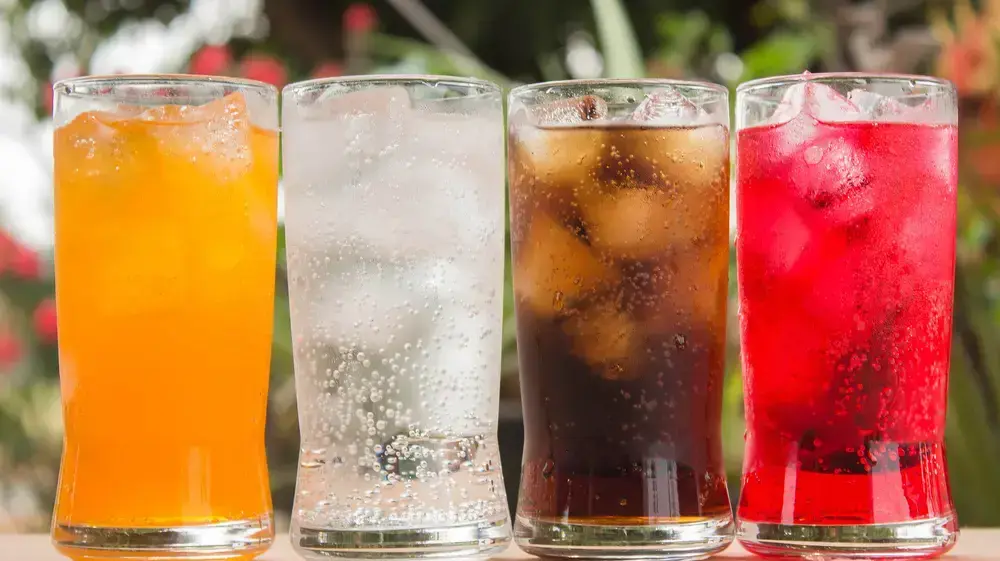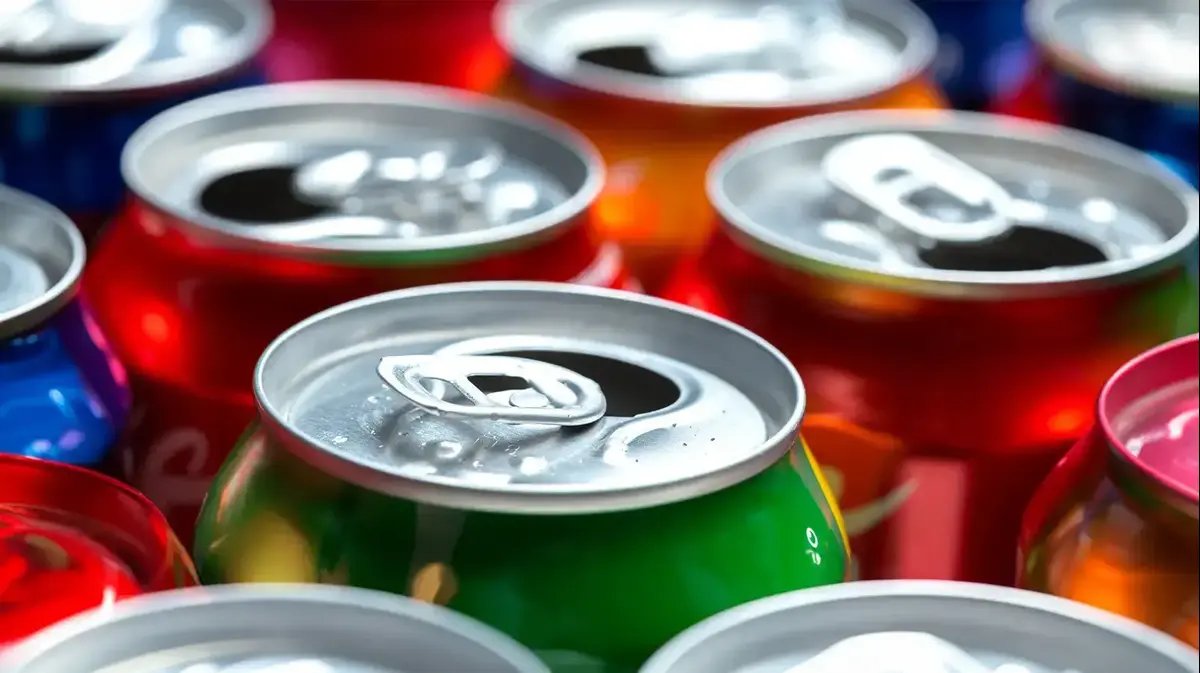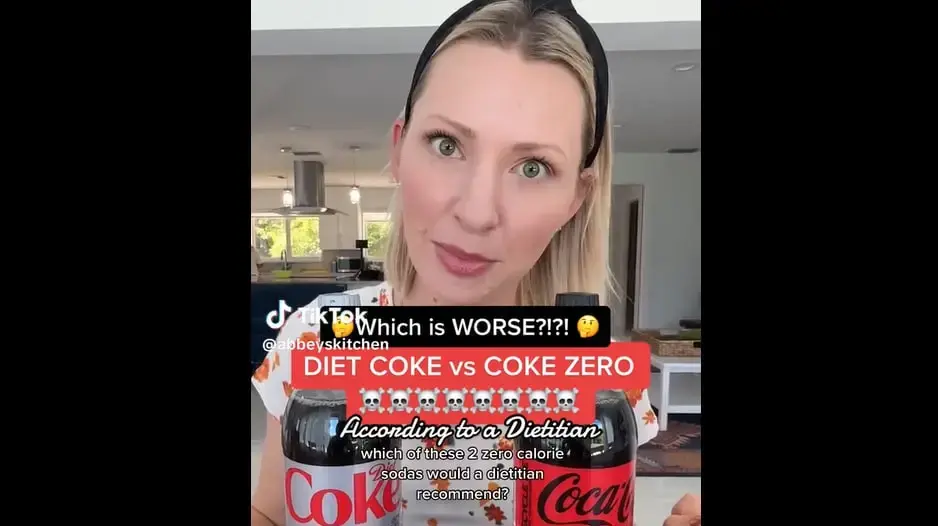- Click to share on Facebook (Opens in a new window)
- Click to share on Twitter (Opens in a new window)
- Click here to share on LinkedIn (Opens in a new window)
- Click to email a friend (Opens in a new window)
(CNN) - Get ready, lovers of diet soda and sugary drinks. It's more bad news and another reason to consider abandoning your favorite sodas.
A new study followed more than 450,000 people from 10 European countries for up to 19 years and found that those who drank two or more glasses of any type of soda a day had a higher risk of dying from any cause of death than people who drank less than one glass or no amount every month. None of the people involved in the study had cancer, diabetes, heart disease or had strokes before their participation.
The study, published Tuesday in the journal JAMA Internal Medicine, found that men and women who drank two or more glasses of sugar-sweetened soda a day had a higher risk of dying from digestive disorders, while those who drank the same Many dietary drinks had higher risks of dying from cardiovascular disease.
The link with digestive disease in the study is interesting, said Dr. Sharon Horesh Bergquist, an assistant professor of medicine at the Emory University School of Medicine in Atlanta.
LOOK: Energy drinks may have involuntary health risks
"Experimental evidence suggests that high blood sugar and high sugar consumption can damage the intestinal barrier, leading to a 'leaky gut' and access to the intestinal immune system that causes intestinal inflammation, alters the microbiota. intestinal and increases susceptibility to intestinal infections, ”he said. "These pathways can increase susceptibility to digestive diseases."
Total soda consumption in the study was also associated with an increased risk of Parkinson's disease, but not with Alzheimer's or cancer.
Soft drinks were defined as "low-calorie soft drinks or diet sodas," "soft drinks," such as cola and lemonade, and "fruit juices or spirits," which are alcohol-free concentrated syrups typically mixed with sugar and water. In this study, a glass of soda contained 8 fluid ounces, or 250 milliliters; The typical can of soda worldwide contains 12 fluid ounces or 355 milliliters.
The end of a love story?
This great long-term study is another one in a growing list of investigations that is sounding the alarm of our love story with carbonated soft drinks.
In February, the American Heart Association published a study that found that drinking two or more artificially sweetened beverages a day is associated with an increased risk of strokes, heart attacks and premature death in women over 50. The risks were higher for women without a history of heart disease or diabetes and obese or African American women.
Previous research has shown a link between dietary drinks and strokes, dementia, type 2 diabetes, obesity and metabolic syndrome, which can lead to heart disease and diabetes.
In March, a study published in the journal Circulation used data from 80,500 women enrolled in the Nurses Health Study and almost 40,000 men from the Health Professionals study. He found that women who drank more than two servings a day of sugary drinks, defined as a standard glass, bottle or can, had a 63% higher risk of premature death compared to women who drank them less than once a month. The men who did the same had a 29% increase in risk.
Those who consumed more than one sugary drink per month but less than two per day seemed to experience a dose effect: the more they drank, the greater the risk.
Replacing a sugary drink per day with an artificially sweetened one reduced the risk of premature death, but drinking four or more artificially sweetened beverages increased the risk of premature death from cardiovascular disease in women. The same effect was not observed for men, and the risk of dying from cancer was not observed.
While previous studies did not see an association between soft drinks and cancer, another study published in the BMJ in July did. The investigation followed more than 100,000 French adults and found that drinking only a small glass of a sugary drink per day (100 ml, approximately one third of a typical can of soda) increased the overall risk of cancer by 18% and 22% The risk of breast cancer.
- The relationship between children drinking more water and consuming less sugary drinks and calories
Only one association
This study, as well as other research on the connection between diet and sugary drinks and health risks, is observational and cannot show cause and effect. According to the researchers, that is an important limitation, since it is impossible to determine whether the association is due to a specific artificial sweetener, a type of drink, obesity or other hidden health problem.
"The cause behind these associations is unclear," Bergquist said. "Other possible biological causes could be attributed to experimental evidence that links the consumption of artificial sweeteners with sugar cravings, appetite stimulation and glucose intolerance."
Robert Rankin, president of the Calorie Control Council, a commercial group of low-calorie and dietary foods and beverages, said in a statement that “low-calorie and calorie-free sweeteners have a long history of safety and are important tools to control Weight and those who control diabetes. This study shows an inaccurate picture of the important role of these products for consumers. ”
Survive a broken heart
Whether there is an association or not, if you have decided to end the adventure with your soda of the day (and avoid future infidelities), good for you, literally. Here are some tips on how to do it with the least of the headaches.
Change your habits
Having withdrawal syndrome is difficult and you may even fail. Instead, registered dietitian and CNN contributor Lisa Drayer suggests a gradual approach.
"Reduce one serving per day until it is reduced to one drink per day," said Drayer. "Then aim for a drink every two days until you can completely eliminate soda."
"Alternating them with carbonated water can help you reduce consumption," he added. "You can eventually replace soda with carbonated water if you're craving carbonated drinks."
Find a different effervescent drink
Speaking of carbonation, for many people the solution is effervescence. Find a carbonated carbonated water or mix a healthy fruit alternative with carbonated water. You can't go wrong with cranberry or grenadine juice, said registered dietitian and nutritionist Rahaf Al Bochi, a spokesman for the Academy of Nutrition and Dietetics.
"The recommendation for fruit juice is generally 4 ounces per day," Al Bochi said.
One caveat: try to drink your frothy drink with food, not alone, experts advise.
Any type of carbonated water can erode tooth enamel. This is because the carbon dioxide that turns water into bubbles becomes carbonic acid in the mouth, which can be detrimental to the health of the teeth.
Stay away from candy
Bergquist suggests satisfying your sugar cravings by replacing naturally sweet foods such as fruits and dates, which contain "vitamins, minerals and bioactive chemicals that promote health called phytonutrients."
"They have sugar with fiber, which leads to a slow and steady, rather than sharp, increase in blood sugar," Bergquist said.
She also suggests committing to a sugar-free challenge for at least two weeks.
"Our taste buds change every two weeks," he said. "That means that if you can overcome the intense sugar cravings during the first two weeks, your taste buds will adapt to find more satisfying natural foods with sugar."
Catch the habit
We are routine creatures. Like when a person may wish to smoke (for example, after eating), find out what your usual trigger is and try to replace it. Are you bored at your desk? Call a friend before having a sweet soda.
Counteract caffeine
If you have not been drinking caffeine-free soda, then a good part of your addition to that soda is the caffeine you are receiving. Try replacing it with green or black tea, says Al Bochi.
"You'll get the caffeine boost you're looking for without added sugar and you'll also receive a good dose of antioxidants," he added.
"Herbal teas such as hibiscus, passion fruit, berries, and mint are tasty and pleasant without providing sugar or calories," says Drayer.
Drink water
Take a bottle of water with you or have a jug of ice water near your desk. If it is easily accessible, it is better to drink water than a sugary drink.
If you're not a fan of running water, Drayer suggested adding some flavor.
“Try to infuse fruit into the water: you can buy a jar, fill it with water, then add slices of oranges, lemons, strawberries, watermelon or any fruit you want so that the water is infused with the taste of the fruit and provide sweetness to your palate, ”she said.
Take advantage of the effort
Finally, allow yourself a slip from time to time.
"Remember that drinking a sugary drink from time to time will not directly cause adverse health effects," Al Bochi said. "Giving you permission to enjoy all drinks and being aware of how it fits into your overall pattern of healthy eating is the key to a healthy relationship with food."
Sugary drinks













